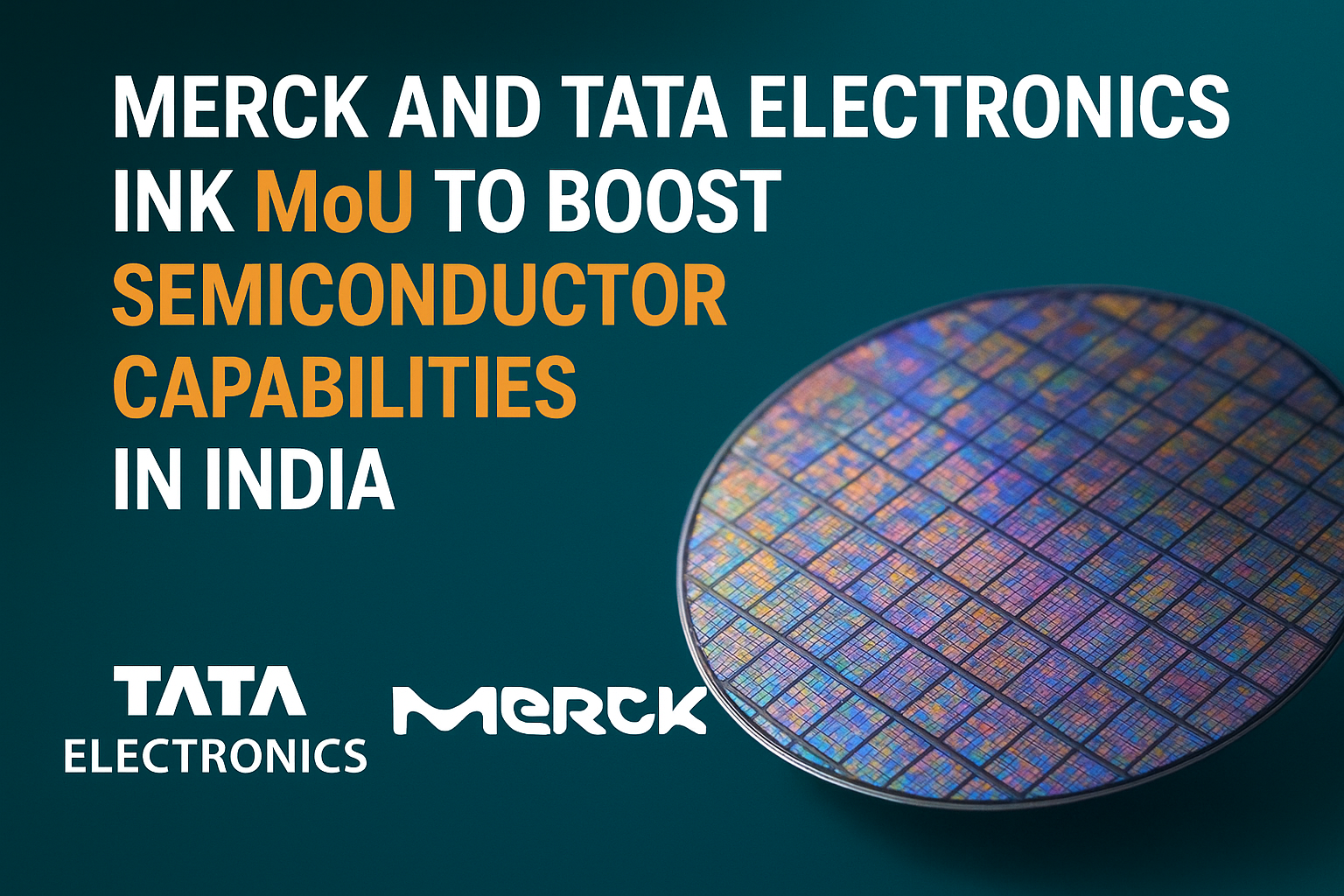India’s semiconductor journey has gained another milestone with the signing of a Memorandum of Understanding (MoU) between Merck and Tata Electronics. This strategic collaboration aims to enhance India’s semiconductor ecosystem by strengthening manufacturing, innovation, and supply chain resilience. The agreement reflects India’s growing ambition to become a global hub for chipmaking and electronics manufacturing.

Tata Electronics’ Growing Role in Chipmaking
Contents
- 1 Tata Electronics’ Growing Role in Chipmaking
- 2 Merck’s Expertise in Semiconductor Materials
- 3 Strengthening India’s Semiconductor Ecosystem
- 4 Government Backing and Industry Push
- 5 Boost for Emerging Technologies in India
- 6 Challenges and the Road Ahead
- 7 Conclusion: A Defining Step for India’s Chipmaking Dream
Tata Electronics, a subsidiary of the Tata Group, has been making bold moves in the semiconductor sector. With government incentives under the India Semiconductor Mission (ISM) and strong industry backing, Tata Electronics is positioning itself as a key player in building advanced fabrication units, packaging facilities, and electronic component supply chains. The MoU with Merck further cements Tata’s role in shaping the country’s semiconductor future.
Merck’s Expertise in Semiconductor Materials
Merck, a global leader in science and technology, brings deep expertise in semiconductor materials, specialty chemicals, and process solutions. Its products are vital for chip production, covering areas like lithography, etching, deposition, and cleaning. By partnering with Tata Electronics, Merck is set to transfer cutting-edge know-how to India, ensuring that local fabs and facilities can match global standards.
Strengthening India’s Semiconductor Ecosystem
The collaboration between Tata and Merck is not just about production—it is about creating a sustainable semiconductor ecosystem in India. The partnership will emphasize research and development, talent training, and innovation in materials science. It will also improve local sourcing of critical semiconductor inputs, reducing India’s dependence on imports from East Asia and Europe.
Government Backing and Industry Push
The Indian government has been strongly pushing for semiconductor self-reliance under its Make in India and Digital India initiatives. With generous subsidies, infrastructure support, and skill development programs, New Delhi is encouraging global and domestic players to invest in fabs and allied industries. The Tata-Merck MoU fits seamlessly into this vision, showcasing how international partnerships can accelerate India’s semiconductor mission.
Boost for Emerging Technologies in India
The semiconductor industry is the backbone of technologies such as 5G, artificial intelligence, electric vehicles, cloud computing, and consumer electronics. By strengthening domestic chip production capabilities, India can ensure smoother supply chains for these critical sectors. The Tata-Merck collaboration is expected to directly benefit emerging industries while also creating thousands of high-value jobs for engineers, scientists, and technicians.
Challenges and the Road Ahead
Despite the optimism, challenges such as high capital requirements, technological complexity, and global competition remain. However, partnerships like the one between Tata Electronics and Merck provide India with the right foundation to overcome these barriers. By combining Tata’s infrastructure capabilities with Merck’s technological leadership, India is moving one step closer to semiconductor self-reliance.
Conclusion: A Defining Step for India’s Chipmaking Dream
The MoU between Merck and Tata Electronics marks a defining moment for India’s semiconductor manufacturing ambitions. It represents not just an investment in technology, but also a commitment to building a resilient and innovation-driven ecosystem. As India prepares to emerge as a global semiconductor hub, collaborations like these will be crucial in shaping the country’s chipmaking future.

